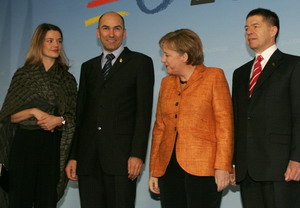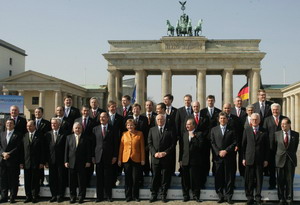Today, the Prime Minister of the Republic of Slovenia, Janez Janša, completed his visit at the informal summit of the EU heads of state or government in Berlin. The meeting focused on the signing of the Berlin Declaration, marking the 50th anniversary of the Treaty of Rome.

(Photo: Kristina Kosec/Bobo)
According to the Slovenian PM, the EU has made great progress in these fifty years, and has positively influenced the development of Europe and other parts of the world. He said that Europe was facing numerous challenges, stressing, however, that that had also been true in the past. "If there were no issues or challenges, EU institutions would be superfluous. The majority of major dilemmas, which Europe has faced in the last fifty years, has been resolved with the strongest political weapon – compromise." Mr Janša has also expressed satisfaction over the fact that this tradition continues, as this meeting focused on the significance of compromise with regard to the new common grounds of the EU.
"It is a fact that the unresolved issue of the Treaty Establishing the Constitution for Europe influences everything. Cleary one of the major EU policies – the enlargement – cannot continue, as long as there is no new institutional basis," stressed the PM, adding that this was particularly significant to Slovenia.

(Photo: Kristina Kosec/Bobo)
The PM believes that the views of the majority of member states are developing positively, towards a compromise. "After reconsideration, the willingness is growing stronger. This is also true for the countries which have not ratified the Treaty, and partly for those in which the ratification did not occur or was rejected at a referendum," said the PM, adding that there were real possibilities that the new institutional basis would be formed before the European parliamentary elections in 2009.